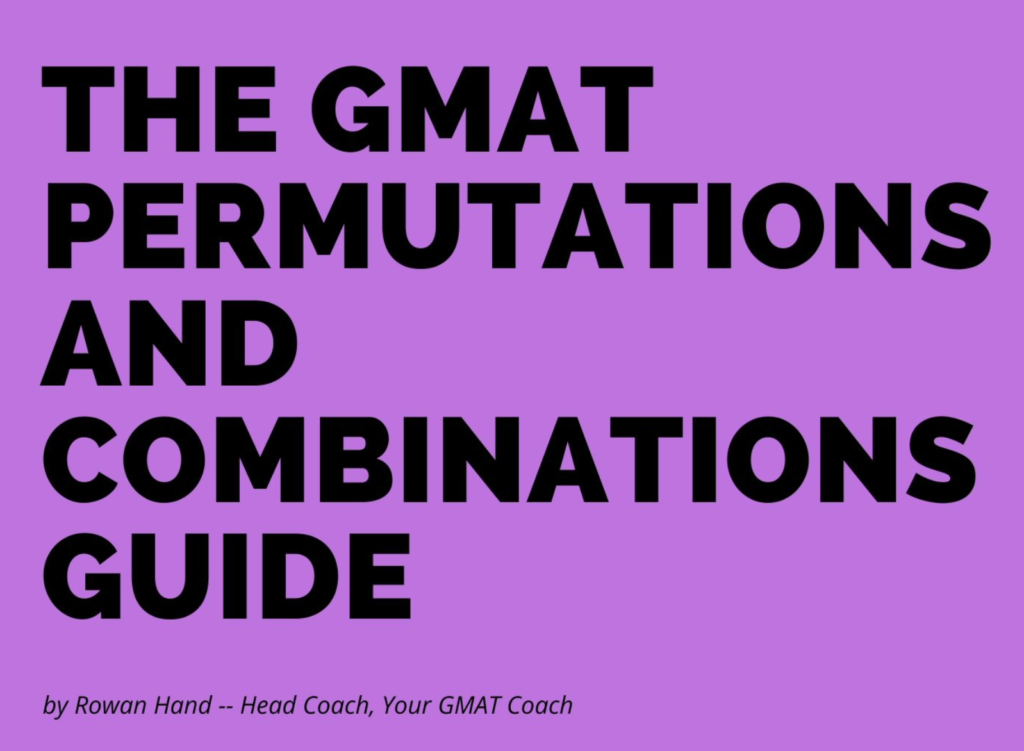I hate the GMAT because it is built to be frustrating.
(Among other reasons, of course!)
Start with contempt. If you get frustrated enough, the GMAT wins. While it’s nice to really enjoy something and pursue everything “for the love,” let’s be honest–that’s bullshit.
At least at the beginning.
Let’s start with a little story…

Stupidly, had really never taken language learning seriously and I had zero French skills when I moved to Paris at age 23.
This might not seem too bad–for those of you who speak English as a second language and perhaps just your mother tongue otherwise may have had a different experience.
On some level–often not consciously–native English speakers actually feel a bit dumb about not speaking other languages and are generally at least accepting of people who speak with an accent or who make errors as long as those people are, more or less, communicating.
(There might be the occasional asshole who speaks loud and slow and still doesn’t stop using some obscure word or whatever, but these are the exceptions, not the rule.)
However, I decided to pick up French in a notoriously hostile environment–Paris; the rest of France is awesome and the people are ace!–full of people who would mock or shame those who dare to speak French with an accent or, dog forbid, make a preposition error.
In one memorable encounter, I remember, the guy actually said, “I respek ze french langage too much to spik wif ze peeple hoo no spik perfectly.” Nice one, dipshit. Lucky I don’t feel the same way about English, eh?
Long story short…
I learned French–and boy did I. I got so pissed off at all the eye rolling, rudeness, and Parisians speaking their bad English really. Slow. As if. I. Was. Mentally challenged. that I studied my ass off and actually got fluent reasonably quickly–in just over a year, I was taking Masters-level classes at the Sorbonne, doing orals and writing papers in French.
Now of course that didn’t stop all Parisians from thinking their English was better than my French. Obviously ze eenglish is a langue inferieure* and these Parisian ass-clowns will continue to Dunning-Kruger their way into thinking they don’t talk like Pepé motherfucking Le Pew.
Whatever. Doesn’t matter. Point is, I hated Parisians–the people, not the language–the same way that you say “I hate the GMAT!“
What does matter is that my French skills got sharp totally out of contempt and shame!
*Apparently it’s remarkable that apes like us Native English Speakers got past scratching, pointing, and throwing feces as modes of communication.
You, my friends, can do the same with GMAT.
HOMEWORK
Pick five things from your list that righteously piss you off about the GMAT. Use those as fuel for your fire of contempt.
I Hate the GMAT Because I Was Shamed by Others
Remember how I was just talking about shame? That thing Parisians do for sport?
Well, same applies to you, brother (or sister). Shame sucks, and it particularly sucks if you had a shitty teacher or (worse, perhaps) a shitty parent.
Learning is vulnerable, and we are bound to make mistakes.
The education system, particularly the grading aspect of the education system, teaches us to be perfect at the expense of creative thinking.
It’s particularly bad for successful people like you who have ticked all the boxes and gone to the right schools and done all the right things and really can’t get anything wrong because… because…
And yet–at this rarified level–you’re taking an exam (the GMAT, yes?) where you don’t need to get all the questions right to get a perfect score and it gives you exceptions upon exceptions to figure out so you have to be–gulp–creative to solve the problems.
What that means is that you need to approach the GMAT less like an exam where you pass or you fail and more like a sporting event or a musical performance (whichever metaphor works better for you, but I’ll stick with sport for simplicity).
No one expects you to be amazing at a sport the first time you try it.
Why is the GMAT any different?
What you do is you learn the basics and develop the muscle patterns so that you can add on to them and eventually do it at a higher and higher level. It’s about iteration, making mistakes, and doing it again. Obviously when you do it again, you do at least something different.
Clearly if it didn’t work that way last time, it is pointless to do exactly the same thing this time as well.
You have to ITERATE. Look at what you did wrong and try new things. Allow yourself room for failure.
This is the equivalent of moving basically anywhere else in France to learn French. People simply don’t speak English and if they want to speak to you at all, you’ll have to learn to get by sooner rather than later. In a case like this, you don’t have to do it out of spite and weather all the shame and criticism piled upon you.
Rather, you just get in there and have to buy baguettes and anchovies and cognac (you are in France, after all) and it’s going to get done somehow, even if it’s messy.
That’s the thing: school–and, too often, parents–don’t want us ever to be messy, but that’s how we learn.
There’s no shame in fucking up. It’s a feature, not a bug.
HOMEWORK
When you make a mistake, make a point of learning from it.
Keep making mistakes–again, consult a good book or a friendly tutor if you need to–and keep plugging away. Don’t be afraid to repeat questions. In fact, that’s one of the best ways to learn.
I mean if you got it wrong, you need to see whether you’ll get it wrong again–and it’s not excuse that you memorized that the answer is D. If you can explain to a kindergartner why the answer is D, then you know it well enough.
Pretty soon, you’ll realize that you’re a dogforsaken grown-ass human being and there is no one there to shame you except yourself. Which brings me to…
I Hate the GMAT Because I Shame Myself
This might be the biggest beast to slay, so I’ve left it for this long into the piece.
Look, I know: you played all the games well and got the good grades and were on the swim team and played jazz piano until you got into the right college and you could just forget about music at that point because when you graduate and you’re working for Bain there’s no time for jazz piano or anything really except…
Yeah, yeah, I’ve heard it before. You’ve done everything right up to this point and now you’ve hit a roadblock.
You wouldn’t be reading this piece if the GMAT weren’t making you shit yourself, so that’s cool–
–I’m with you and I’m here to let you know that that’s OK. The sink’s over there; I’ll turn around while you clean yourself up.
For what might be the first time EVER, you haven’t done well on something and you don’t know how to deal with it. I see that an I acknowledge that it is in fact ridiculously emotionally taxing. Jokes aside, I am acknowledging that this sucks.
Look: not doing well at something academic is actually a game-changer for many of us.
It means that our very identities are challenged. If you think “being a good student” is, you know, a thing you do, then it’s really difficult to suck at something.
The point is that sucking will pass. You need to embrace the suck, as the Marines (ha!) would say. It’s going to be messy. Live with it. Get a little better every day. You’ll be OK.
The more you beat yourself up about it, the worse it gets. The more you start to say “I hate the GMAT.”
Remember this: after a certain point of learning the only thing that holds people back on the GMAT is psychology.
The more frustrated you are with the exam, the less flexible you’ll be with your thinking. That, if I’ve not been clear, is a less-than-ideal circumstance.
We need to open up the possibility that you can succeed on the GMAT just as you’ve succeeded on many other things that, just maybe, you were once a bit crap at.
After all, no one plays like Oscar Peterson the first week they tickle the ivories, except maybe your colleagues at Bain, but whatever. Those people are monsters.
HOMEWORK
Write for five minutes straight, no stopping. Use the below questions as prompts.
Think about something you were shit at, but ultimately became good at.
What was it?
How did you get better at it?
What was the moment when you made the decision to get better?
How did it feel?
Where is that feeling located in your body?
Take that feeling and see if you can maintain it while you think about the GMAT.
How does that change how you feel about the GMAT?
What next steps can you take?
Stay tuned for Part III, coming soon!






